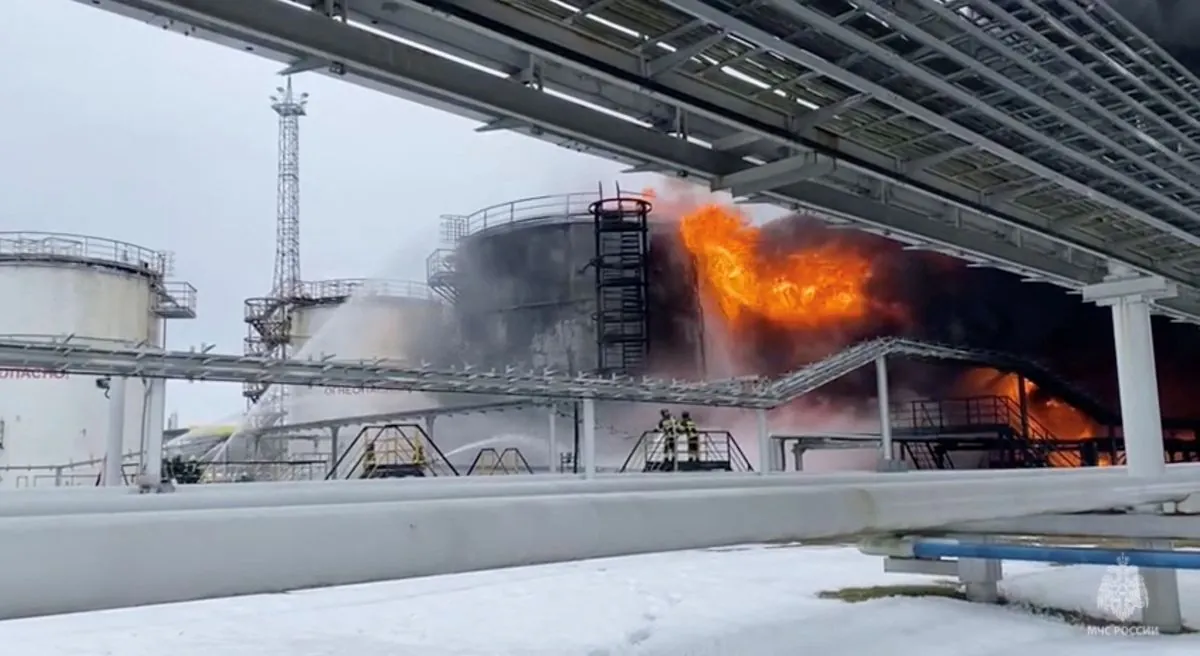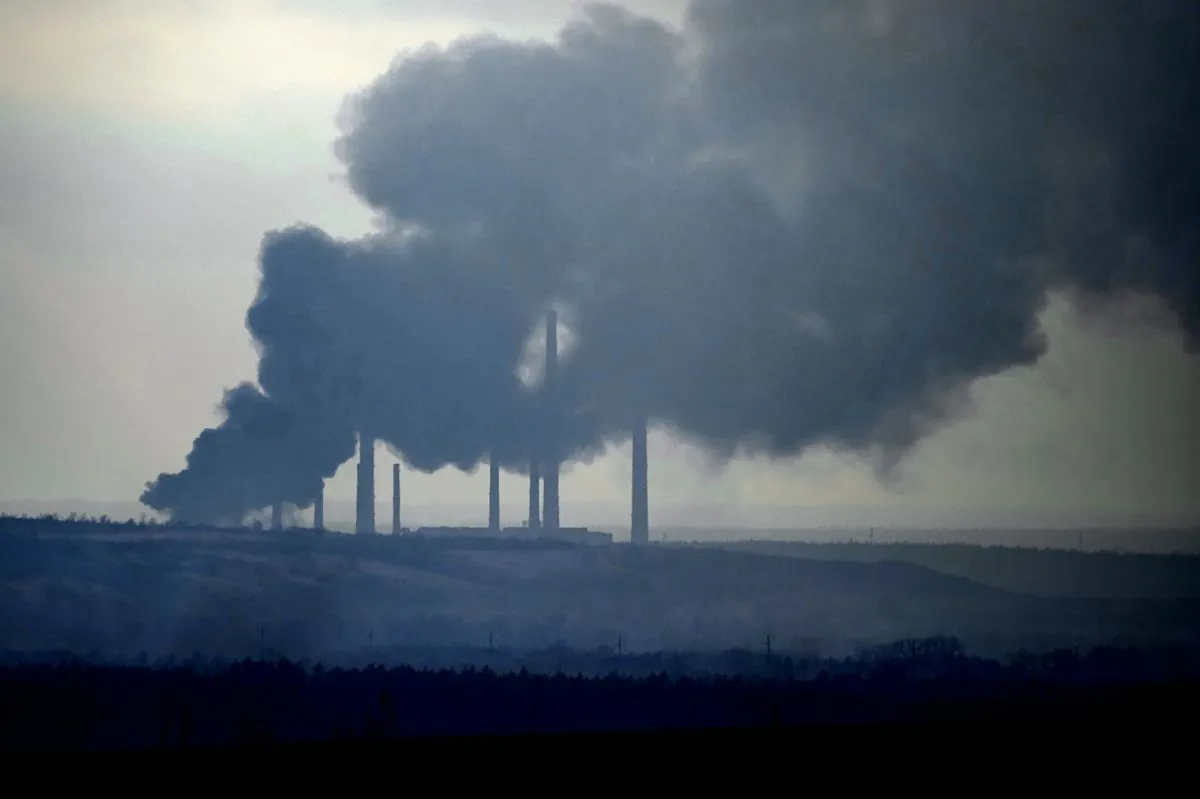Ukraine's Energy Warfare: Striking Russian Oil Infrastructure
Ukraine continues deep-strike operations on Russian oil facilities, causing significant damage. The ongoing energy conflict includes attacks on power grids and concerns over nuclear plant safety.

Ukraine's military strategy has expanded beyond conventional warfare, incorporating deep-strike operations targeting Russian oil infrastructure. This approach aims to disrupt enemy logistics and boost morale while causing economic damage to the aggressor.
Kyiv's forces have successfully attacked over 30 Russian oil installations in 2024, with recent strikes causing substantial damage. A notable incident occurred at a fuel depot in Proletarsk, where a fire has been burning for four days, potentially destroying up to $200 million worth of fuel. Additionally, a refinery in Novoshakhtinsk was hit during a large-scale attack on Moscow.
These strikes have impacted approximately 17% of Russia's oil-refining capacity. However, experts question the long-term effectiveness of this strategy. Sergey Vakulenko, an energy expert at the Carnegie Russia Eurasia Center, states:
"The drones can cause economic damage an order of magnitude or higher than the cost of the drones themselves, and so yes, there is some economic damage and net benefit, cost-wise. But the damage done is brief and relatively easy to repair."
The energy conflict extends beyond oil facilities. Russia has targeted Ukraine's power infrastructure, damaging over half of its electricity generation capacity. This has led to concerns about the upcoming winter, as urban heating systems rely heavily on these power plants.

The broader energy war includes ongoing natural gas transit through Ukraine to Western European countries, despite the conflict. The 2023 Nord Stream pipeline incident, attributed to Ukrainian freelancers, adds another layer of complexity to the situation.
Nuclear power plants have also become focal points in the conflict. The Russian-occupied Zaporizhzhia Nuclear Power Plant, Europe's largest, has faced safety concerns raised by the International Atomic Energy Agency. Recent incidents, including a fire and a drone explosion near the facility, have heightened tensions.
Darya Dolzikova, a research fellow at the Royal United Services Institute, comments on the nuclear situation:
"The Russians have used and will continue to use the precarious state of nuclear safety at Zaporizhzhia for their own rhetorical and blackmail purposes. I suspect they may try to do the same in relation to the Kursk NPP."
As the conflict evolves, the effectiveness of Ukraine's energy warfare strategy remains debatable. While causing short-term disruptions, it has yet to significantly impact Russia's oil revenues or war-making capabilities. The ongoing energy battle underscores the complex nature of modern warfare, where economic targets play an increasingly crucial role alongside traditional military objectives.


































